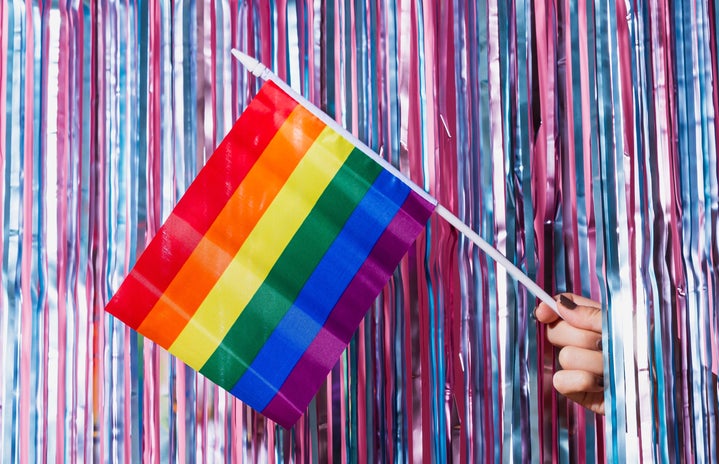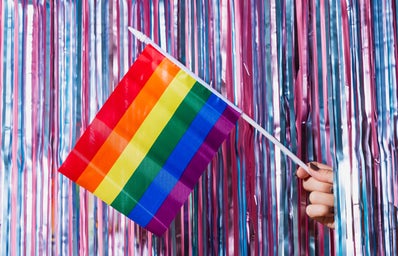Growing up in a small town in southern Ontario, bisexuality simply did not exist. If a friend of mine told me she liked both boys and girls, whispers from adults would swirl around; phrases like attention seeker, slut and even whore come to mind. Similarly, if a male friend told me the same, he plainly had one foot out of the closet.
As a girl who identified with the LGBTQ+ community from a very young age, I found this sentiment very confusing. I found girls pretty in the same way I found boys cute for as long as I could remember. But if bisexuality wasn’t real and I definitely was not a lesbian, then I must have just been faking it, right?
In retrospect, I’ve been experiencing same-sex attraction for a very long time, but had been sweeping it under the rug in a fear of “faking it” or being seen as “not gay enough.” This compulsory heterosexuality is something that I’m still coming to terms with today.
“I’ve been experiencing same-sex attraction for a long time, but had been sweeping it under the rug in a fear of ‘faking it’ or being seen as ‘not gay enough.'”
Luckily for me, moving to a big city, combined with two years of forced self-discovery, I’ve been able to come to terms with my sexuality and feel comfortable identifying as a bisexual woman. Unfortunately, there’s more to self-discovery than the “self” parts. My internalized biphobia and imposter syndrome were both things I could work on by myself, but after coming out, something that soon came to my attention was the deep ingrained societal fetishization of queer women.
Being objectified by men wasn’t a new concept for me, but my sexuality being taken and completely disregarded for its validity, and instead, being viewed as something for men to get off on, was an entirely new concern.
The more I thought about it, the more I could see it in every piece of media that I consumed. Bi women in movies kissing to impress a guy, bi women participating in threesomes and orgies (with men each time, of course) and bi and lesbian women being used as pawns in popular music as objects for men to look at. The very song that inspired this article, “Girls Want Girls” by Drake does just that. With lyrics reminiscent of a creepy interaction with a man who won’t take “no” for an answer, Drake insists that if you’re a lesbian, then he is too and begs that you, “please bring your girlfriend along with you.”
This commodification in itself is enough to give me a stomach ache, but it’s only worse when compared to how society––specifically cis straight men–– have viewed and treated gay and bisexual men. While gay women are viewed as either attention seekers or simply something for men to look at, queer men are viciously hated and mocked.
“While women are viewed as either attentino seekers or simply something for men to look at, gay men are viciously hated and mocked.”
The treatment of gay women is not so surprising, after all, why would an absence of attraction or a meaningful relationship with another woman stop a man from viewing women the same way they always have: as objects for them to use as they wish. It is the treatment of gay men that is a bit puzzling since, among most men, they usually grant each other much more respect than women. I’ve come to the conclusion that this is partially due to straight men fearing being treated the same way that they treat women. Either consciously or subconsciously, men know that the way they dismiss and objectify women is wrong, and knowing this, they feel emasculated and vulnerable next to gay men.
All of this is to say, it is unfortunate that straight men simply cannot view us as the people we are. This is due in part to the harmful ideas about the LGBTQ+ community pushed by society historically, as well as the deep-rooted misogyny. As I work towards self-acceptance as a bisexual woman, I am now also working towards helping society accept the queer identities of women everywhere. As a society, we need to dismantle the idea that bisexuality isn’t valid so that women like me can come to terms with their identities sooner. Compulsory heterosexuality is a real thing for so many queer women because of these stereotypes and society’s heteronormativity.
This all begins at home as well as on the big screen. Instead of being portrayed as attention seekers or untrustworthy cheaters, we need more accurate bi representation on TV. Having valid characters to relate to will allow queer women to feel more comfortable discussing these feelings without being dismissed or judged. Lesbian women should be portrayed only for themselves and not as a sexualized fetish. Intersectional feminism is vital when targeting these issues. It is important that we stand up for queer women whenever we hear them being dismissed or undermined.
My wish moving forward is that bisexuality will exist for the next generation and that queer women and their identities will be taken seriously in the way that the identities of cis men often are. This all starts with you. Correct people when they say something dismissive about queer women, and hold men accountable for the way they sexualize you and others. Once mainstream culture changes the way we view queer women- hopefully, we will begin to see less “Girls want Girls” and more respect for the validity of someone’s sexuality and choices.


